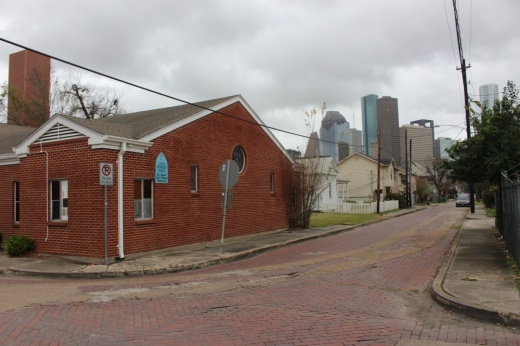The new designation, recently developed through the Houston Planning Department, allows community members to establish a nonprofit fund for a neighborhood. Any donations can be spent on the public right-of-way such as streets and sidewalks. Organizers in the Freedmen's Town have fought for years to preserve the community’s heritage as a neighborhood built by Black Texans after the news of emancipation spread to the South.
“Often referred to as the Harlem of The South, Freedmen’s Town was established in 1865 by newly emancipated African Americans who purchased land and created a vibrant community, said Freedmen’s Town Conservancy Director Zion Escobar. “The heritage district is intended to foster civic and cultural pride.”
The Freedmen’s Town Conservancy, an organization focused on cultural preservation in the neighborhood, will be responsible for determining how funds are spent.
“What's important about this is raising funds to maintain and enhance the city's right of way in Fourth ward, including the brick streets,” Council Member Abbie Kamin said. “I have to thank the Freedmen’s Town Conservancy, The Preservation Coalition and the planning director Margaret Wallace Brown, and the mayor of course for bringing this forward.”
Escobar said the funds can be used for anything from preserving the area’s historic brick streets to establishing a walking tour with designated signs throughout the neighborhood.
“As this community moves from where it is to having all of the history and the culture recognized, this would allow for different types of way-finding, signage, and markers for tourism,” Escobar said. “There will be a very intensive community outreach process.”
Eventually, Escobar said she hopes the community can gain further protection through a historic district designation. Unlike a heritage district, a historic district designation applies to private property. It ensures that home renovations keep in line with the area’s architectural history.
“It's so important for us to do everything we can to hold on to as much of that history and not lose it because it defines in large part who we are as a city, we have lost a lot but we have not lost it all,” Mayor Sylvester Turner said. “It was intentional, we wanted it on the agenda before Juneteenth.”





